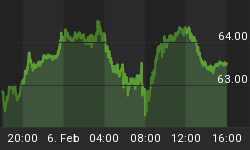How much excitement can a statement by the Federal Reserve's Open Market Committee (FOMC) generate? Given that the Fed has been printing over a $1 trillion of fresh currency over the past year, more are indeed taking note when the Fed speaks.
In our assessment, the Fed statement is a compromise of what may be an internal dispute at the FOMC. We are referring to a $300 billion program to buy Treasury Bonds, previously scheduled to run out in September. Buying Treasury Bonds is intended to lower long-term interest rates; and from what we can tell, it is in the Fed's foremost interest to keep long-term rates low to keep the nascent economic recovery on track.
However, massive financing requirements by the federal government, states, as well as the private sector, not to speak of international public and private issuers, may push the cost of borrowing higher this fall. Alas, the Fed wants to keep some powder dry to intervene in the market.
Trouble is that there's very little powder left in the approved program. In the past, our Senior Economic Adviser and former St. Louis Fed President William Poole has referred to the Fed's initiatives akin to sipping from the ocean with a straw. It may not be prudent to open a new box of powder at the last minute, but if the Fed intends to use it, the market should be prepared for it. Hence, it may have made sense to increase the program now.
The committee wanted none of that, yet to admit that something may need to be done, they extended the length of the program without the amount. That's like saying we keep the bar open an extra couple of hours, but good luck finding any alcohol. With many alcoholics in the room (we are referring to market participants addicted to cheap credit, not Fed officials), we have our doubts they won't convince the barkeeper (the Fed) to make more cheap booze (currency) available.
All of this may be a prudent tactic. More likely, however, it reflects an internal battle at the Fed, as some are calling for less, others for more cheap credit. Is the Fed becoming a rudderless ship? It may require a crisis to see strong leadership yet again. And another credit crunch we may get if the cost of borrowing goes up.
Of course, we wouldn't have this discussion if the Fed allowed market forces to play out and weed out the weak players. But the political will to pursue sound monetary policy seems absent all too often as the credit crisis evolves.















